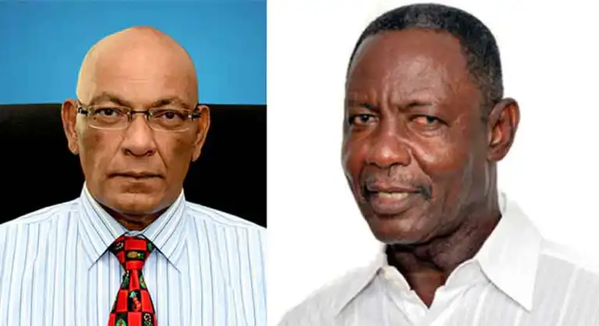—-World Bank Report
High costs, power outages, and poor quality of connectivity are the most important challenges that house-holds face when accessing and using the internet in Guyana, the World Bank said in a new report released last Monday.
Titled “An Uneven Recovery: the Impact of COVID-19 on Latin America and the Caribbean”, the World Bank said while internet connectivity has been a key mitigation tool for households to cope with the negative effects of the pandemic6, there are important challenges when trying to access it.
“Firstly, in countries such as Honduras and Guyana, over 70 percent of households report having trouble using the internet because of power outages,” the report stated. Across the region, this affects 37 percent of households. Moreover, nearly one out three households in LAC report the high cost of internet services as one of the main problems. Households in Colombia, Peru, and Haiti are particularly affected by this issue. Finally, more than half of households experience poor quality or low speed of internet services. Low access to the internet and poor internet quality can undermine the ability to work from home or connect virtually to school, resulting in direct effects on households.
Frequent blackout has been a norm in Guyana despite millions of dollars being invested into the Guyana Power and Light (GPL). Consumer advocate, Dexter George during a Public Utilities Commission (PUC) webinar held under the topic “Energy and Electricity: What we should all know” had said that the situation is such that consumers are not getting at least 90% efficiency out of the moneys being spent.
On the left, Chief Executive Officer (CEO) of GPL, Bharat Dindyal and on the right, Trade Unionist, Lincoln Lewis
According to a Kaieteur News report while highlighting several concerns surrounding GPL’s performance in supplying electricity to its consumers, George said, “In relation to power outages, I should say by now it’s a norm in Guyana. As soon as you see a little bit of cloud expect the power to go.”
George said he is aware of the infrastructural works that are currently being done by GPL and even agreed that there will not be a consistent distribution of power supply to consumers. However, he noted that despite the aforementioned there should still be a certain flow of electricity to consumers. The advocate further noted, that very often GPL publishes notices on social media and in the newspapers indicating that there would be daily, scheduled outages for maintenance works and infrastructure upgrades.
He said, “For the last couple of months, along the Georgetown/ East Coast Corridor where they are doing some infrastructural changes, the frequency of power outages was too high and a lot of persons complained about it.”
Following George’s comment, the Chief Executive Officer (CEO) of GPL, Bharat Dindyal disclosed that the State entity will be looking to source US$292M for a transmission and distribution ‘master plan.’ Dindyal stated that the ‘master plan’ is already in the development stage while adding that the company is now in the process of sourcing financing since it’s a big investment. He noted that the master plan is expected to be implemented over a five to eight years period. According to Dindyal, the State entity is looking at a combination of grant and loan resources and highlighted, that in relation to the loan the company will be looking at ‘concessional financing.’ The CEO said, while many institutions are interested in financing the master plan, the company’s main source will be the International Development Bank (IDB). He further stated that with the company’s newly developed master plan for transmission and distribution; the project will call for a complete rebuild of the existing network.
General Secretary of the Guyana Trades Union Congress, Lincoln Lewis said that Guyanese should not have to resign themselves that frequent blackouts have returned. He said the government’s promise of buying electricity from private suppliers to feed the national grid and reduce blackouts has not proven to change the situation for the better. “At night, rather than go to sleep knowing there is power, Guyanese have to pray for power or accept that they have to set up in their homes and watch their surroundings for fear of thieves capitalising on the dark, attacking them and stealing their hard-earned possessions,” Lewis noted.
He said too that citizens wake up and go to sleep tired of the electricity woes. “Guyanese are finding it hard to accept that they have to minimise purchase of perishable food. The gamble will have to be made whether to purchase or ignore bargains that require cold storage. People are skeptical purchasing perishable items such as meat, greens and poultry ignored due to fear that should they purchase them blackout will spoil them. Sellers are also affected because they are left with products on their hands and will have to throw them away,” Lewis said.
He said when it is not worrying about food, it is worrying about protection of electrical appliances from being destroyed or not being able to conduct one’s business. Blackouts affect the way people spend and plan their lives. The blackout has become a cycle of mishaps and people are sick and tired of it. Living a life like this in the 21st century is going backward not forward. The government needs to come up with a credible and viable plan to stop the electricity woes.


